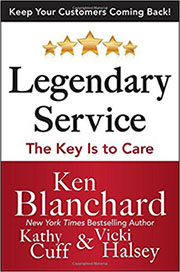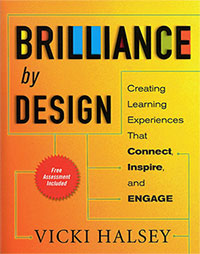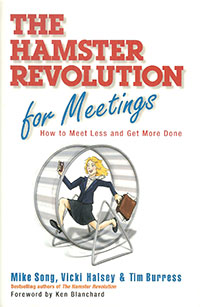 Your defensiveness is killing your relationships and you don’t even realize it.
Your defensiveness is killing your relationships and you don’t even realize it.
What? Me being defensive? I’m not defensive! YOU’RE the one that’s always defensive!
That’s a classic defensive response to a piece of feedback. Throw up a wall, rebut the statement, and accuse the other person of the same complaint. The sad thing is many of us react defensively without even thinking about it. In her book, A Mind of Its Own: How Your Brain Distorts and Deceives, Cordelia Fine points out that we think other people’s bad behavior toward us is intentional, but we dismiss our own bad behavior as inadvertent, a mistake, or unavoidable due to circumstances out of our control. This allows us to feel morally superior to the other person while simultaneously protecting our ego from the possibility that we may actually be incompetent or acting like a jerk.
The Causes of Defensiveness
People react defensively because they anticipate or perceive a threat in their environment, not usually because they’re just wanting to be difficult. Unfortunately, defensive behavior creates a reciprocal cycle. One party acts defensively, which causes the other party to respond defensively, which in turn causes the first party to raise their defenses even higher, and so on and so on. Defensive behavior can be a complex and murky issue. For many people, their behavioral patterns stem from emotional, mental, or personality issues/tendencies developed over the course of their lifetimes (feelings of abandonment, inferiority, low self-esteem, narcissism, etc.).
Beyond the mental and emotional factors, there are types of behaviors that cause people to respond defensively. Defensive communication expert Jack Gibbs outlines six behavioral categories that create defensive responses in people:
- Dogmatism – Black and white, I’m right and you’re wrong, either/or, and other kinds of all or nothing thinking and communication cause people to react defensively.
- Lack of accountability – Shifting blame, making excuses, and rationalizing behavior leads people to raise their defense levels.
- Controlling/Manipulative – Using all sorts of behaviors to control or manipulate people will lead to defensive behavior. No one likes to feel like they are being used by someone else.
- Guarded/Withholding Information – When people feel like they are being left in the dark or purposely excluded from having information they should know, they are threatened and will react defensively.
- Superiority – Want someone to be defensive? Then act like you’re better than him/her, lord your power, knowledge, or position over them and see how they respond.
- Critical – A constant focus on catching people doing something wrong, rather than right, creates a climate of defensiveness.
How to Deal With Your and Other People’s Defensive Behavior
Dealing with defensive behavior can be complex and exhausting because it’s hard to separate a person from their behavior or the situation. And as mentioned earlier, some people’s defensiveness is so deeply rooted in their behavioral patterns that there is little realistic chance they will permanently change. However, there are some helpful strategies we can use to deal with our own defensiveness and that of others:
- Re-frame the behavior – Rather than label a person’s defensive behavior as bad, understand it for what it is – defensive. Once you understand it as defensive, then you can explore why the person is feeling threatened and work to address the threat(s). One of the reasons we get so frustrated with defensive people is we try to deal with the behavior without addressing the threat that is causing the behavior.
- Reduce the danger – Once you’ve identified the threat(s) causing the defensive behavior, work to reduce the perceived danger. Be moderate in your tone, even-tempered, empathize with their concerns, be respectful, and respond non-defensively to avoid escalating tensions.
- Develop self-awareness and emotional intelligence – Self-awareness is the foundation of emotional intelligence. Through self-improvement, counseling, training, or mentoring, explore the causes of your defensive behavior. What are the triggers that make you feel threatened? Having a better understanding of yourself will not only help you regulate your own behavior, it will give you better insight into the behavior of others as well.
- Replace negative feedback with questions or offers to help – If you have to regularly deal with someone who reacts defensively, you’ve probably noticed that the slightest bit of negative feedback sets them off. Try replacing the negative feedback with a question or an offer to help. For example, instead of saying “Sally, you made a mistake on this report,” rephrase it by saying “Sally, I’m not sure I understand this section on the report. Could you help me figure it out?” Remember, a person acts defensively because he/she perceives a threat. Try to make the situation non-threatening.
- Move from dogmatism to openness – The less people feel boxed in to either/or, yes/no, right/wrong choices, the less threatening the situation. Of course there are times where things need to be done a specific way, but if you approach the situation with a spirit and attitude of openness rather than “my way or the highway,” you’ll get a more open response.
- Treat people as equals – Approach other people in a collaborative manner, looking for ways to help them win in the situation. Take time to identify and recognize their needs, discover what’s important to them, and validate their concerns.
Defensiveness destroys relationships from the inside-out. It creates a climate of contention and tension that eventually leads to a loss of trust, alienation, and separation. The opposite of defensiveness, openness, creates an atmosphere of freedom, growth, respect and trust. Identifying the root of defensiveness in our relationships, and working toward addressing and removing those issues, will help improve the overall quality of our relationships and the productivity of our teams and organizations.
Read more http://leadingwithtrust.com/2014/06/29/your-defensiveness-is-killing-your-relationships/






